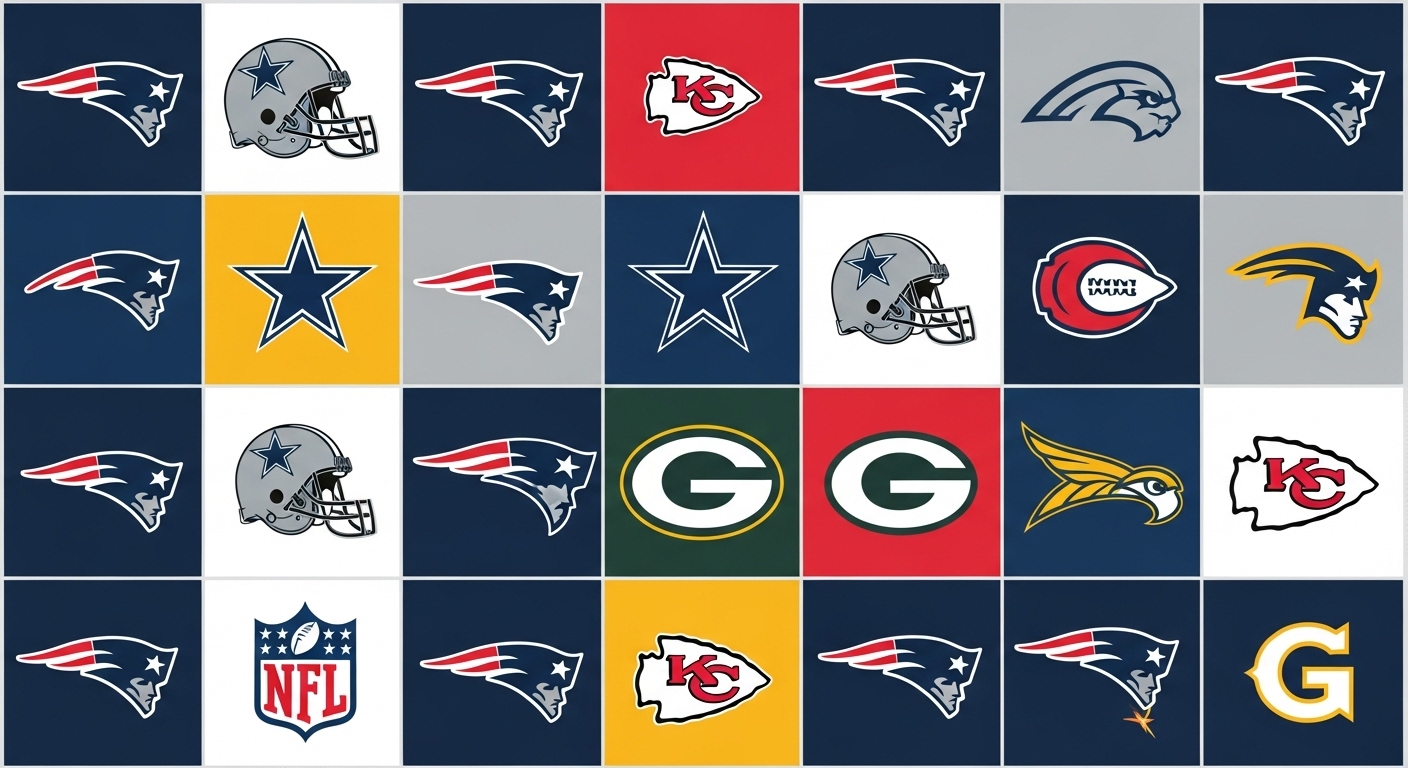The National Football League has been home to dynasties, underdog stories, and legendary seasons that shaped the way fans understand greatness. Debates about the best NFL teams of all time are endless, with each generation holding on to its icons and memorable squads. Measuring greatness is never simple, because it can be defined by dominance, championships, star power, innovation, or the ability to inspire cultural change. Yet certain teams stand apart, remembered not just for winning but for leaving an indelible mark on football history. Looking back across decades of competition, we find teams whose achievements set the standard for what it means to be among the very best.
When people talk about perfection in the NFL, one team instantly comes to mind: the 1972 Miami Dolphins. Coached by Don Shula, this squad achieved what no other team has ever done by completing a season without a single loss, going 14–0 in the regular season and winning all three postseason games, capped by a Super Bowl victory. Their dominance was not built solely on flashy plays or high-scoring offense but on balance and resilience. The Dolphins combined a punishing ground attack, known as the “No-Name Defense,” and efficient quarterback play to methodically dismantle opponents. While some critics argue that their schedule was not the toughest, the fact remains that no team before or since has achieved true perfection across an entire season, cementing the 1972 Dolphins as an eternal measuring stick.
If perfection defines the Dolphins, dominance defines the 1985 Chicago Bears. This team became a cultural phenomenon, remembered not only for their devastating defense but also for their swagger and personality. Under head coach Mike Ditka, and with defensive coordinator Buddy Ryan orchestrating his famous 46 defense, the Bears terrorized opponents by allowing the fewest points in the league and producing highlight after highlight of bone-crushing tackles. They went 15–1 in the regular season and stormed through the playoffs, culminating in a Super Bowl XX victory where they humiliated the New England Patriots 46–10. Beyond the stats, this team embodied attitude. With stars like Walter Payton, Mike Singletary, and the unforgettable William “The Refrigerator” Perry, the 1985 Bears transcended football, even recording the “Super Bowl Shuffle” music video that reflected their larger-than-life presence. For many fans, no team has ever captured dominance and charisma in such a perfect blend.
The turn of the millennium brought another dynasty in the form of the early 2000s New England Patriots. Bill Belichick and Tom Brady became the faces of an era where preparation, discipline, and clutch performances defined success. While different iterations of the Patriots achieved greatness, the 2007 team deserves special mention. That squad went 16–0 in the regular season, showcasing an offense that rewrote record books. Brady threw for 50 touchdowns, with Randy Moss catching 23 of them, a single-season record. Although the season ended in heartbreak with a Super Bowl loss to the New York Giants, the sheer dominance of their regular-season performance puts the 2007 Patriots in the conversation as one of the greatest teams to ever take the field. Even in defeat, their influence on offensive strategies and their aura of invincibility remain unforgettable.
Long before the Patriots, another dynasty had already cemented its legacy. The 1978 Pittsburgh Steelers, part of the famed “Steel Curtain” era, are widely regarded as one of the finest squads in NFL history. The Steelers of the late 1970s built their dynasty on defense, with legends like Mean Joe Greene, Jack Lambert, and Mel Blount shutting down opponents. Yet they also had offensive firepower, with Terry Bradshaw at quarterback, Franco Harris in the backfield, and Lynn Swann and John Stallworth catching passes. The 1978 team went 14–2 and captured another Super Bowl, their third in five years, proving that balance and depth were essential to sustained success. What made the Steelers special was not just one great year but an entire era of dominance, and the 1978 season remains a prime example of their peak power.
While the Steelers owned the seventies, the San Francisco 49ers ruled the 1980s. The 1989 49ers, under head coach George Seifert, are often singled out as the most complete version of that dynasty. They finished the regular season 14–2, then obliterated their playoff opponents, including a 55–10 demolition of the Denver Broncos in Super Bowl XXIV. With Joe Montana playing quarterback at the height of his powers and Jerry Rice dominating as perhaps the greatest wide receiver of all time, the offense was unstoppable. The defense, anchored by Charles Haley and Ronnie Lott, ensured that opponents stood little chance. The 1989 49ers epitomized precision, balance, and ruthlessness, making them a template for what modern franchises aspire to become.
Debates about the best teams must also acknowledge the legacy of the 1991 Washington squad, a team sometimes overshadowed by more famous dynasties but statistically among the greatest. That year’s team, led by coach Joe Gibbs, combined a dominant offensive line known as “The Hogs” with quarterback Mark Rypien’s career-best season. They finished 14–2, outscoring opponents by a margin of more than 16 points per game, and crushed the Buffalo Bills 37–24 in the Super Bowl. Analysts often rank them among the most efficient and complete teams in NFL history, with their blend of power running, deep passing, and tough defense leaving a lasting impression.
The Green Bay Packers of the 1960s deserve their place in the conversation as well, particularly the 1962 team coached by Vince Lombardi. With Bart Starr at quarterback and Jim Taylor leading the rushing attack, the Packers went 13–1 and displayed a dominance that laid the foundation for the league’s modern championship culture. Their toughness, discipline, and execution became the gold standard for professional football, and the Lombardi name itself remains synonymous with excellence, enshrined in the trophy awarded to every Super Bowl champion. To dismiss these early Packers would be to ignore the origins of greatness in the NFL.
When evaluating the best NFL teams of all time, it is clear that greatness comes in many forms. Some teams achieved it through flawless records, others through sheer dominance, and still others through sustained dynasties that reshaped the league. Fans will always debate whether the 1972 Dolphins’ perfection outweighs the dominance of the 1985 Bears, whether the statistical brilliance of the 2007 Patriots should eclipse their Super Bowl defeat, or whether dynasties like the Steelers and 49ers deserve the top honors for consistency and championships. Ultimately, what these teams share is their ability to define eras and inspire conversations decades after their final whistle.
The beauty of football lies in its evolving nature. Each generation introduces new strategies, new athletes, and new contenders for the title of best ever. Yet the legendary teams of the past serve as milestones, reminding us what greatness looks like when everything comes together—coaching, talent, chemistry, and heart. The debate over the best NFL teams of all time may never reach a final answer, but perhaps that is what makes it so engaging. The history of the league is richer for the diversity of its champions, and every great team leaves behind a legacy that adds to the tapestry of America’s most beloved sport.

